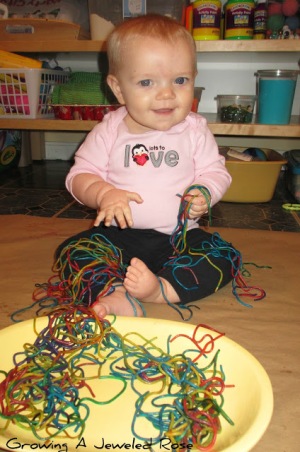
So, I’ve been thinking about TBI recovery a good deal, lately. I go in fits and spurts — I’ll go for months, not wanting to think at all about TBI recovery, then I’ll go for months thinking almost exclusively about it.
Now I’m back to thinking about it, and I’ve reached a somewhat different conclusion about what makes for a good recovery, than I had in the past. Just so you know, I speak from my own experience, but what I’ve found could just as easily apply to others, so use what you can, and ditch the rest as needed.
Basically, I’m now of the opinion that recovery from brain injury is very similar to growing up all over again. When we are infants, our brains are undeveloped in terms of physical and social and emotional ability, and we spend the next several decades working on those abilities. Some of us continue to learn and grow, continuing the learning process well into advanced age.
Some of us decide that once we’ve “got it down”, we don’t need to learn anything else, and we prepare to retire, hit the golf links or bocci ball turf or shuffleboard alleys. I think that given the prevailing culture, which has long told us that once you get to “a certain age”, your brain just doesn’t learn new things as well anymore (that old dog new tricks line), a lot of us automatically mentally head for the retirement home, at a certain point in life. A lot of actually start moving in that direction early on.
Those folks are often the ones who believe that you have what smarts you have, and you don’t ever develop any more. These folks have a “fixed” mindset. Versus the folks who believe that nothing is set in stone, and we’re always learning and developing new skills and abilities. These folks have a “growth” mindset. Carol Dweck talks about this in her book Mindset, which I haven’t read yet, but I hope to within a few months (maybe weeks).
Experiencing a brain injury is a bit like growing up all over again. It’s like going from an adult to a child, in some ways, where you have to re-learn all sorts of things that you used to know “cold”. For people who aren’t oriented towards growth and change, this can be devastating. It’s also problematic that brain injury can blind you to alternatives and options and keep you in a very limited frame of mind that is addicted to things being “fixed” and set and stable.
The problem with needing things to be “fixed” and set and stable, is that it just doesn’t happen that often. And when it does happen, it doesn’t last. So, you have to keep adjusting and adapting… whether you like it or not.
If you want to get back to being and functioning like an adult, you have to do that. There’s no other option — you’ve got a renovated brain, so use it or lose it.
I’ve come up with a new idea for how I can “use it” and make my TBI recovery more complete. Now that I am able to read books again (I read half a book on the plane while I was traveling for business), I find that I am also able to write again. I used to love to write stories — short stories, even full-length novels. Looking back, they were not very good, and the benefit was really more for me than anyone else. But they benefited me a great deal. In fact, I think that writing really helped me recover through a number of TBIs in the course of my life. It soothed me, and I also believe it developed my brain to see the world in wider ways.
It also opened me up to the idea of having new experiences and seeing them as “fodder” for my muse. I was able to have a whole lot of experiences that would have normally thrown me off, if I had not looked at them as “material” for my writing later on. I stayed open to experience, because I believed my purpose in life was to have those experiences and then write about them later.
Ultimately, I didn’t become the published author I always longed to be. But I did develop a practice that let me make sense of my world in ways that were meaningful to me. And I did develop tolerance for difficulty and frustration. Because, well, that was just part of life, and if I was going to be a good writer, I needed to be exposed to as much of life as I could be.
Now I see that my writing really helped me create positive neural connections, over the years. And the fact that I could not read or write for close to 10 years, really explains why my mind became so fixed, so narrow, so brittle. I wasn’t exercising my “mental muscles” and I was losing what I was not using.
I’m ready for that to change, now. I’ve been writing about my experiences on this blog since 2007, and now I can expand what I write about to include more than what’s in my head. Adding what’s outside of my head, what’s right in front of me, what I am experiencing in my senses, with the same excitement and joy I felt when I was much younger… these are things I believe will help me recover even more. I miss it, in fact. So, why not start again?
I’m on good footing, right now. For now, anyway. And I’d like to bump up my progress just a little bit more — with complete experiences of all my senses, keeping my whole person engaged — body, mind, spirit, heart — in this thing we call life.
This seems a positive way forward. So, onward.

